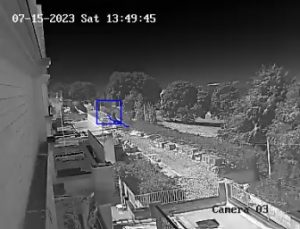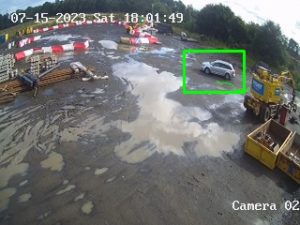CCTV cameras are used to secure homes and businesses. In recent years, they have gained immense popularity as an effective security measure. As business owners personally can’t monitor their business all the time, they are turning towards CCTV systems to keep them informed of what’s happening when they aren’t around. This blog post will give you an insight into the advantages and disadvantages of keeping an eye on your employees and customers.
Legal issues
UK legislation allows employers to use CCTV cameras in the workplace. Surveillance cameras can be deployed wherever there is a legitimate business as long as there is a need for security requirements that cannot be addressed by other means. According to the DPA and GDPR guidelines, the owner must inform anyone who might come under the surveillance of the CCTV cameras. Employers need to maintain a clear policy about the purpose and extent of monitoring.
As a business owner, you’ll need to ensure that footage is secured from theft and accessible only to designated personnel. Also, any data transfer is done in compliance with the data transfer law. The Human Right Act (HRA) of 1998 is the most fundamental piece of legislation that governs the use of surveillance systems.
Advantages of surveillance cameras
Installing Surveillance cameras in your workplace can offer a number of benefits to you. If employees know that they’re being monitored, they will follow the rules and avoid inappropriate behaviour. If they don’t know that CCTV cameras are there, you can easily catch any illegal activity and also provide valuable evidence to the police if necessary.
Even the smallest successful businesses have a set of policies and procedures for employees to follow. Watching the CCTV footage of your staff will give you an insight into how well they are following the rules that you have set. Also, it can inform where you need to make changes in the standards.
As a business owner, it’s hard to think about employee theft. However, you need to consider it as employee theft in the UK costs businesses over £190 million each year. This can reduce the profits of your business, limit its chances of success and possibly endanger its future. CCTV cameras can deter employee theft and catch employees in the act. You can also prevent employee theft by building a solid set of internal controls.
The disadvantages
Some employers choose not to install surveillance cameras in their companies. Cameras may reduce employee performance by creating an environment of distrust. Informing employees that they’re being monitored can convey the message that you don’t trust them to handle their jobs. In fact, this is especially true for workplaces that try to implement creative and free-thinking.
There have also been repeated cases where employees have objected to being under constant surveillance without their consent. A few of them have also demanded legal action against their employers in relation to this. Critics have also argued that installing security cameras implies that the employers are convinced that the staff will do something wrong.
Original article found here
In the wake of the economic climate security has never been so important. At Platinum Asset Protection we feel securing possessions in the work place is greatly important. From an office to the biggest stadiums we’ve got you covered. Don’t hesitate to contact us today for a FREE no obligation quotation and survey.













